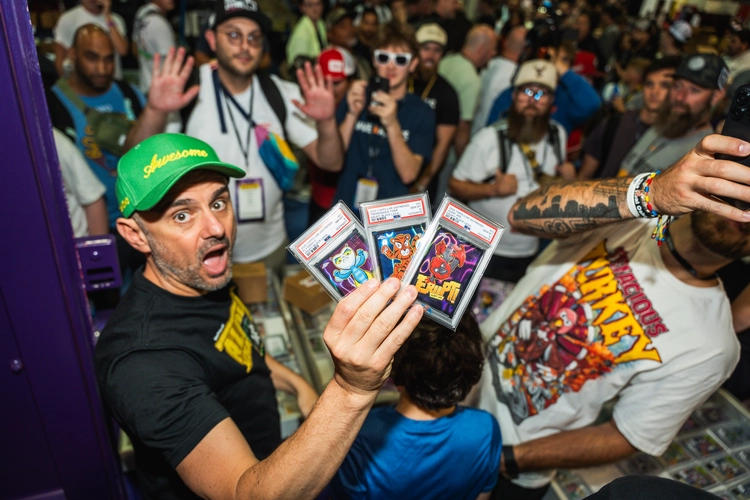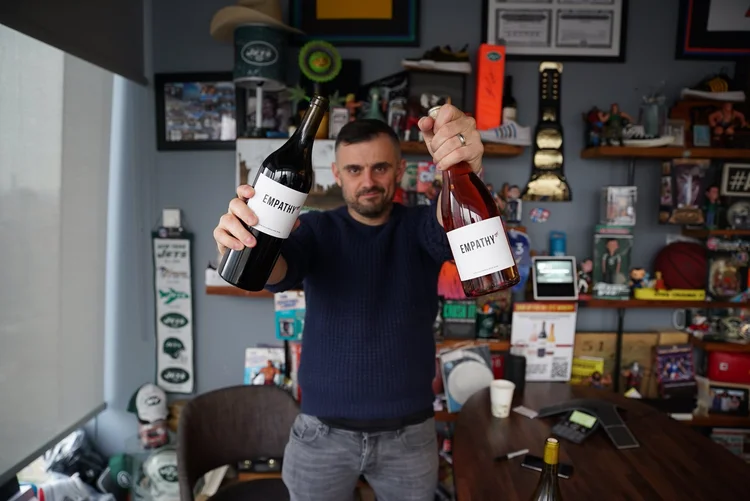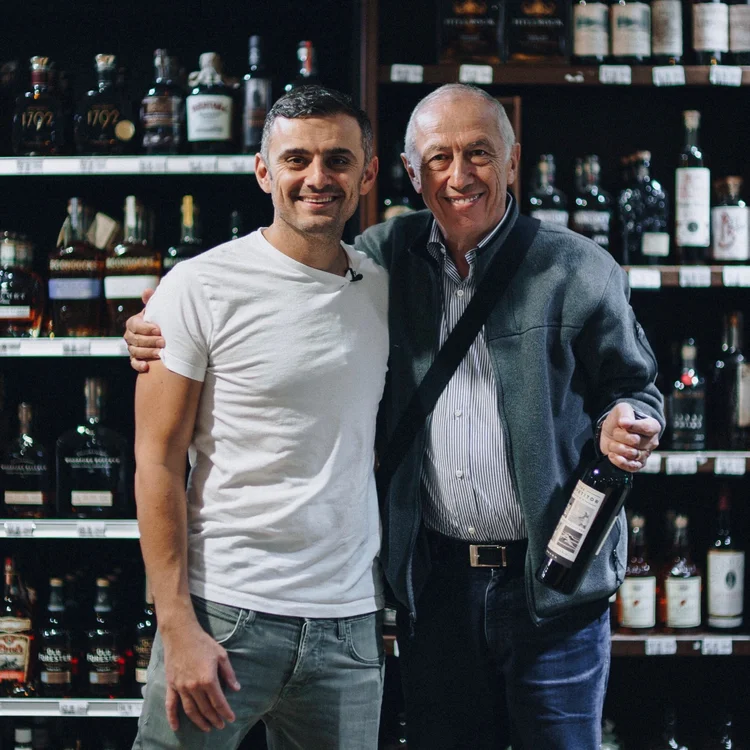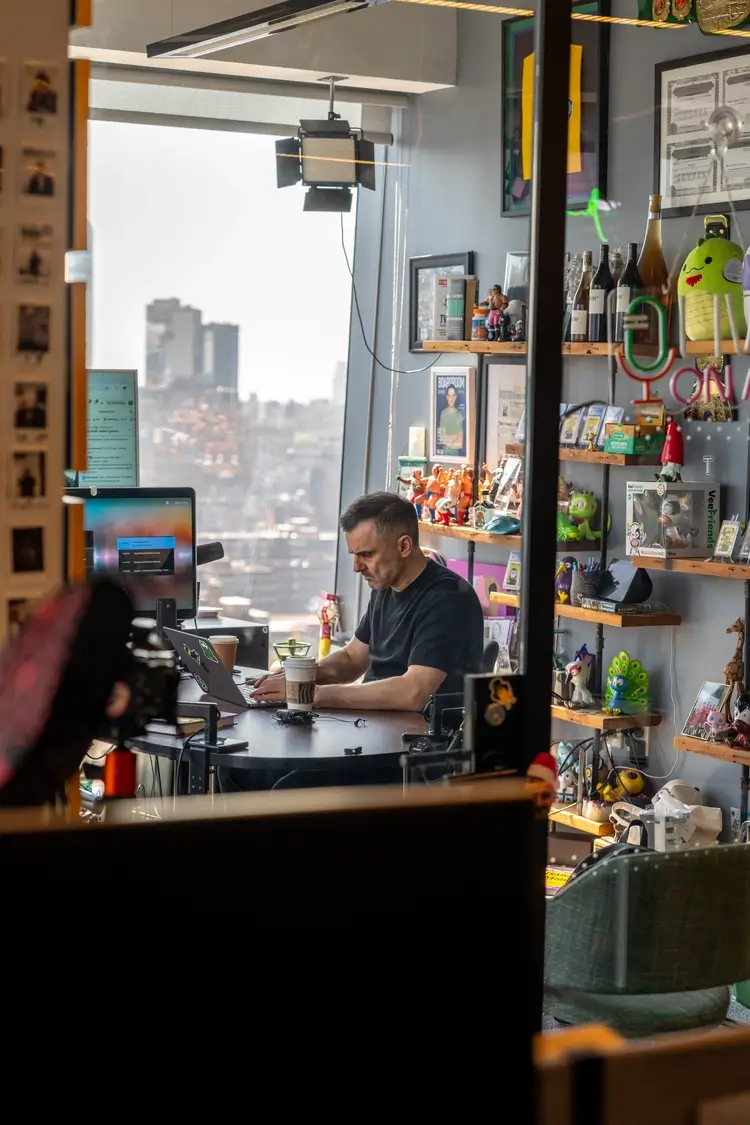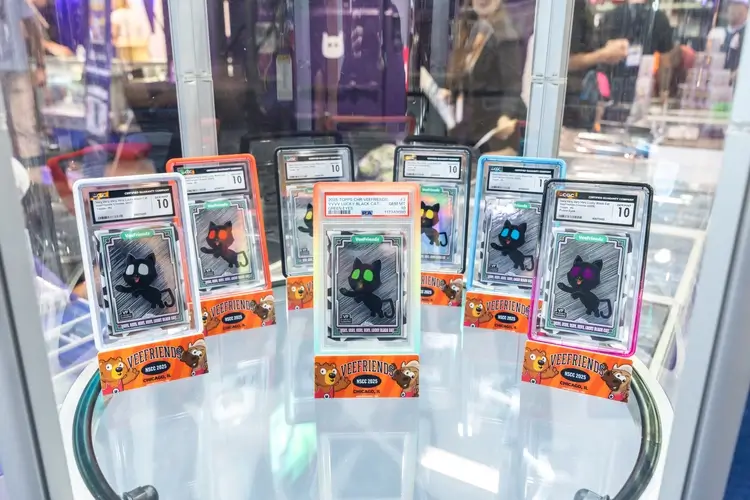Gary Vaynerchuk Plays the Long Game
If Gary Vaynerchuk didn’t exist, Silicon Valley would have had to invent him. No algorithm could code the combustible cocktail of clairvoyant intuition, East Coast hustle, and monastic work ethic that powers this entrepreneurial polymath. He is part futurist, part corporate therapist, and wholly allergic to the anemia of safe ideas. As for subtlety? That’s for people trying not to be noticed.
We meet on a morning thick with high-frequency buzz. “Attention,” Vaynerchuk tells me from behind his signature kinetic warmth, “has always been the asset. But now it’s fractured, splintered into a million micro-moments: fleeting, brittle, and utterly monetizable.” Our conversation shape-shifts and unfurls like something from Milan Kundera’s late period. Our topic, ostensibly, “Day Trading Attention,” Vaynerchuk’s latest book, but he is irrepressibly, indefatigably bigger than any one topic. A man of macro-vision and micro-detail, he speaks with the fervor of a beat poet who just swallowed McKinsey’s back catalog whole.
Part manifesto, part controlled detonation aimed at the crumbling bastions of traditional marketing, the book argues — persuasively and with bulletproof swagger — that relevance trumps reach, and that the real estate of the human mind is won not with a single glossy campaign but with an unending cadence of moments that matter. The book’s central argument strikes him as so obvious that it’s almost quaint to have to articulate it. “Relevance creates resonance,” he says. “That’s what leads to consideration. That’s when people buy.”
What separates GaryVee the media avatar from Gary Vaynerchuk the man is not authenticity, but aperture. “Intuition,” he says. “You’ve got to know if NFTs are a five-minute fad or a five-year movement.” He might as well be talking about metaverses, or whatever the marketing department is pitching this quarter. “People ask me if something’s going to stick,” he says and shrugs. “My answer? Maybe. So try, because if one of those things hits, it’ll make up for the nine that didn’t.”
What’s astonishing is not the advice, but the stamina behind it. Vaynerchuk doesn’t just anticipate waves; he paddles toward them with joy. “The cost of experimenting is nothing,” he insists, “compared to the cost of staying still.” And in Vaynerchuk’s world, “still” is the dirtiest four-letter word of all.
What Fortune 500s don’t understand is that they are afflicted by a peculiar form of time-traveling paralysis, he explains, eyes narrowing. “They’re obsessed with yesterday. Intrigued by tomorrow. And they have no energy for today.” His contempt for corporate inertia is delivered not with disdain, but with the pity of a surgeon diagnosing terminal blandness. “They’ll spend a million on a metaverse storefront with six visitors but won’t invest in a piece of social creative that could reach six million.”
This, it turns out, is Vaynerchuk’s version of prophecy: not prediction, but insistence. He believes, fervently and almost religiously, in relevance. “Potential reach?” he scoffs. “That’s vanity. Actual reach — that’s what matters. That moment when someone sees a post and goes, ‘Huh,’ and maybe buys the coffee.”
Vaynerchuk’s obsession with attention has given way to something more expansive: the pursuit of intellectual property as a project. VeeFriends, his Sesame Street–meets–Pokémon universe, isn’t just a marketable IP play; it’s a Trojan horse for emotional intelligence. Characters, like Decisive Duck, Empathy Elephant, Self-Aware Hare, are whimsical carriers of virtues that feel almost radical in their overt sincerity. “When I was a kid, G.I. Joe ended with a lesson. So did He-Man. We’ve lost that. Now the world just wants your money,” he says. In his telling, VeeFriends is a way to reclaim that lost cultural utility while still playing, unapologetically, in the high-stakes arena of global commerce.
“We overcorrected,” he says, almost mournfully. “Parenting got weird. Somewhere between participation trophies and existential dread, we forgot the power of characters that teach.” He cites G.I. Joe and My Little Pony with reverence. “Every cartoon back then ended with a lesson. I want to bring that back. But this time, I want to scale it.”
This is Vaynerchuk’s terrain: the restless border between culture and commerce, where intuition is the currency and cynicism the tax. At VaynerMedia, his empire of creative commandos, the brief is not to play it safe, but to play it now. Here, experimentation is less a risk than an obligation; failed bets are shrugged off, folded into the next iteration, metabolized by the machine.
Vaynerchuk speaks of attention as others speak of oil or rare earth metals: a finite, fiercely contested resource. However, unlike those commodities, attention is volatile; its value fluctuates rapidly, spiking and plummeting in hours, sometimes even minutes. In his hands, the principle is less a gamble than a worldview — an almost athletic comfort with risk, a refusal to be paralyzed by the possibility of loss.
Perhaps the most affecting moment of our conversation came when he paused the interview to answer a call from his son. The interruption was so achingly sincere it became its own thesis. “Years ago, a friend told me his dad always answered the phone when he called,” Vaynerchuk says. “That changed me forever.”
He’s a paradox in motion: the mogul who makes TikToks, the sage who believes cartoons can raise the collective emotional intelligence of a generation. At one point, we speak of Pencils of Promise, his philanthropic initiative to build schools in places where textbooks are luxuries and classrooms are held under trees. It’s poignant, given that Vaynerchuk was a self-confessed “atrocious student.” “Entrepreneurship was my way out,” he says. “In other parts of the world, that escape route doesn’t exist unless you build the damn school.”
Vaynerchuk, whose public persona, GaryVee, operates somewhere between messianic pitchman and gruff Jersey uncle with opinions on dopamine and branding, has built a sprawling business from the raw material of cultural intuition. This is Vaynerchuk’s entrepreneurial calculus: waste is not waste if it buys proximity to the future. And failure is not failure if it was done in earnest pursuit of signal over noise. He speaks with the rapid-fire cadence of someone whose brain is five tabs ahead of his browser, and with the intensity of a man defibrillating corporate America out of its creative coma.
And then there’s the New York Jets, his moon shot and holy grail. “I’m not chasing the team,” he clarifies, “I’m chasing the chase. I want to own them one day because I couldn’t even own a jersey as a kid; my mom knit me one. That’s the dream.”
It’s not for the owner’s suite or the merch empire. Not even for the primal, testosterone-sodden thrill of potential Sunday supremacy. He wants the Jets because once, in a New Jersey childhood trimmed in immigrant grit and VHS static, his mother couldn’t afford to buy him a jersey, so she knit him one. And if you don’t feel a small tectonic shift beneath that — if you’re not, at the very least, intrigued by the idea that emotional sincerity might be the most undervalued currency in modern business — then, frankly, you’re not ready for Vaynerchuk. Because this self-made, self-aware, self-replicating oracle of attention isn’t here to pitch hustle. He’s here to seduce you with it.



